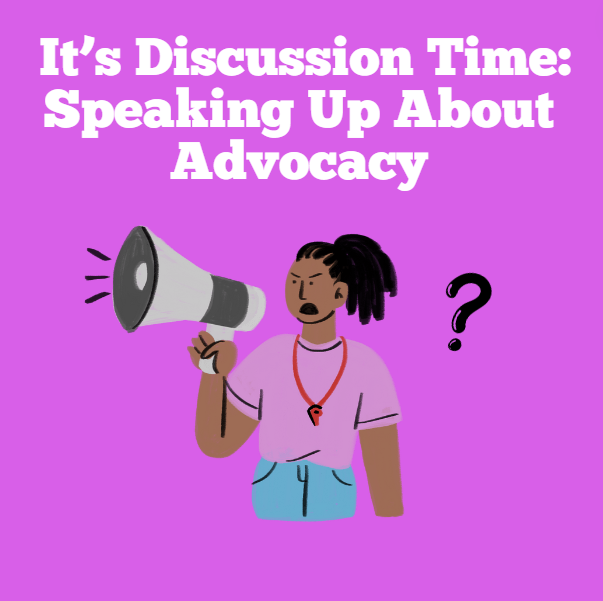In most people’s lives, one of the most common questions we ask is the simple word, “Why?” For instance, when your parents take away your phone, you scream WHY? This question is the start of advocacy. Questioning about the parent’s choices supports the same rationale as questioning other people and organizations for their decisions. Advocacy is defined by the Oxford Languages as “the giving of public support to an idea, a course of action, or a belief.” In simple terms, advocacy is when you are standing up or arguing for important issues. In recent decades, the important issues that make us uncomfortable to talk about have always been the most important. Advocacy has become more relevant than ever, and it needs to be discussed starting now.
One of the most recent events in Claremont for advocacy has been the Pomona Colleges protest and arrest of 20 protestors. The Claremont Courier newspaper explains that this event was initiated when students protested against the dismantlement of the “Apartheid Wall” in recognition of Palestinians and “calling for Pomona College to divest itself from entities connected to Israel’s role.” This situation escalated and police were involved when the protestors went into the President’s office. Beyond the event itself, the message from this event should bring back the question about advocacy and what it means to us. The students who protested cared a significant amount about the topic to speak out against Pomona College’s affiliation to entities that are connected to Israel’s role in the war in Gaza. The execution might not have been the best, but it brings us to the core issue about standing up and critiquing others actions.
In Emmeline Pankhurst’s speech for women’s suffrage, she makes the analogy that politicians care about the baby that screams and is noisy rather than the quiet one. For them to get the attention of their policymakers, they must make noise to be heard. The central idea of advocacy is to highlight these key factors. However, while being loud and clear is important, it is important to make sure that the advocacy movement is not harming the others around you. It has been exemplified through many non-violent demonstrations that you can not compromise others’ safety in the process of getting your point across.
In the broader context of the digital age, voices have also been heard through posts and content via social media. Twitter Tweet storms used by many GOTV initiatives have been key to promoting ideas and pressuring politicians to respond to important issues. The usage of online platforms for such as Twitter, Instagram, and Facebook have been prominent for the #MeToo moments have been extremely helpful in advocating for female rights and speaking out against sexual assault. As students, we speak out for issues that we need to care about. However, it is also extremely important to know how to advocate for it to create traction and results. Students should attend hearings, discussions, and seminars on the issues they care about. Many organizations dedicate zoom meetings and seminar meetings to educate on advocacy and political topics. For example, the Civics Center dedicates many seminars and sessions to advocate for ways to increase youth voter turnout. Nearby Claremont Colleges also host several free events discussing current events and analysis on emerging issues. The key to advocacy is to ensure that you know enough to advocate.
In a world that is constantly evolving, it is never a bad thing to speak out and question the changes made. In the process of creating change and promoting advocacy, we have to first ask the question why before engaging in resounding solutions. So it is finally time to speak up for what matters to you.













